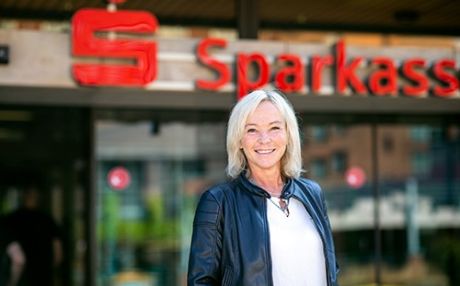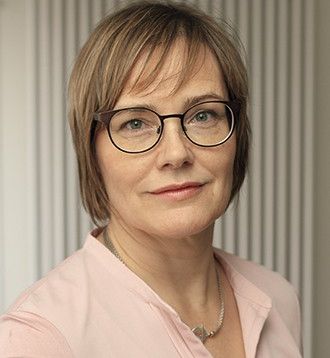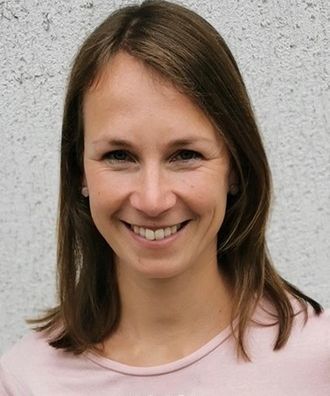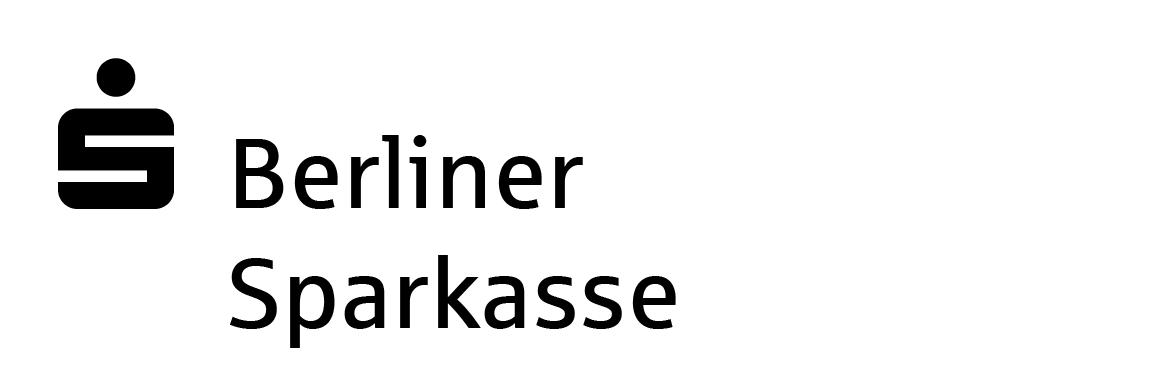
International and diverse: people from all over the world work in Berlin.
Berlin is considered the most international city in Germany. The city’s companies also count on this image and compete to attract qualified specialists. But how international and diverse are Berlin’s companies really when it comes to their corporate culture? How do they support employees from abroad in relocating? And how do they embrace the different cultures? When it comes to religious diversity, do festivals like Christmas exist at all? Three companies provide information.
Table of Contents
- New job in a new city
- Hiring via video conference
- Internationalisation through business
- How does Berlin compare internationally?
- Diversity at Berliner Sparkasse
- Corporate culture in the global players
- Networking and exchange among Siemens employees
- German virtues – still in fashion?
- Religious diversity and Christmas?
New job in a new city
You’re new in a foreign city, in an unfamiliar neighbourhood, the streets full of people speaking with „Sch“ and „T“ sounds. A commuter train ride away, a large office building awaits you, along with a new employer you've never met in person.An exciting story? Not at home24!
Because like many companies, especially in the digital sector, home24 has increasingly geared its employee recruitment to the virtual. Job interviews, assessment, conclusion of contracts – all this can be handled entirely via telecommunication. This makes the day when you finally face each other in person all the more exciting

Hiring via video conference
home24, founded as a start-up in 2009, is now one of the leading online shops for home and living in continental Europe and Brazil. Since its foundation, home24 has set itself the goal of constantly improving online furniture shopping and offering a wide selection of furniture for every taste. The shopping experience is intended to be easy and fun for everyone. A particularly sophisticated filter system helps customers make their selections easily and efficiently. Today, the company employs more than 1,500 people, just over 600 of whom work in and around Berlin.
„We are currently recruiting many new employees from Russia and Brazil, in particular for our IT division. In most cases we have not met them in person before they move to Berlin. Nevertheless, they can count on our support – we help our new colleagues with every step of their relocation, whether it's an embassy appointment or obtaining their tax identification number,“ says Laura Schneider from home24's HR department. „We have cases where there is a whole year between signing the contract and the first face-to-face meeting.“
„It's an investment that's still paying off,“ adds Andrew Thomas, head of talent acquisition at the company. At home24, around 58% of employees in Berlin alone come from nations other than Germany. „Our teams are so international that our official company language is English. However, German is also spoken in some teams. Our internal communications are bilingual so we can reach all employees.“
Internationalisation through business
If there is one sector of society that drives global internationalisation, it has always been business. If one traces through history, above all the expansions and collapses of great world empires, trade relations are a fixed constant that have always provided cultural and linguistic exchange, dialogue and relationships. So it's no surprise that almost all major companies today boast a corporate culture that promotes inclusion and cultural openness. It is already proven that companies work more successfully when they integrate as wide a range of employees as possible. A company is 36% more likely to be particularly profitable if its management is made up of people from different cultures. Source: McKinsey 2020
How does Berlin compare internationally?
„Of course, the national legal framework is also a relevant factor here,“ says Andrea Noelscher, who is the contact person for equal opportunities, equal treatment and diversity at Berliner Sparkasse's HR department. „The German General Act on Equal Treatment stipulates that discrimination on the grounds of ethnic origin, gender, religion or ideology, for example, must be prevented or eliminated in job application processes. Of course, employees can also complain, openly or anonymously, if rules are violated. But this is almost never the case regarding cultural differences,“ Noelscher says.
As the city's largest financial services provider, Berliner Sparkasse has a good overview of local companies, and from their point of view, Berlin’s companies do not have to hide from global competition. On the contrary, employees here have more extensive rights than in many other countries.
This is also demonstrated by the example of Berliner Sparkasse itself. Like many of the city’s companies, the Berlin financial services provider – which was the first savings bank in the region when it was founded in 1818 and, in addition to its expertise in private banking, is also a reliable financial partner for Berlin's business community – is committed to the values of sustainability: economic, ecological and social. The goal is the long-term wealth of the region and its employees.

Diversity at Berliner Sparkasse
Accordingly, diversity is also a matter of course in personnel policy. Promoting diversity is just as much a part of the corporate culture at Berliner Sparkasse as a working environment in which acceptance, tolerance and mutual trust are practiced. The company is seeking to make diversity within the workforce more transparent and to increase it. They are aware that different perspectives contribute significant value to the company and are essential for their shared success. To this end, they have agreed on joint regulations with the works council. „As a savings bank in one of the most diverse cities in Germany, it is both an opportunity and an economic necessity to reflect the diversity of our clientele in the diversity of our workforce. In this way, business potentials can be leveraged and expanded. This benefits both the customers of Berliner Sparkasse and its employees.“ This is why Berliner Sparkasse signed the „Diversity Charter“ back in 2015.
„Our clientele is diverse – so are we,“ Noelscher enthuses. Around 3,520 employees from 32 nations work at Berliner Sparkasse.
Corporate culture in the global players
The global corporation Siemens, which was founded in 1847 as a small workshop in a Berlin backyard, has also long been a staunch advocate of a culture of diversity. Within the group, there are a wide range of opportunities for international assignments and exchanges, including various programs allowing young talent to move to other locations of the globally active company.

„On international assignments, we support our employees every step of the way, from visa applications to relocation to finding housing. We work with professional relocation agencies so that our employees have to worry as little as possible about the logistics,“ says Simone Homann from Global Business Services. In Berlin alone, Siemens employs around 5,000 people; in Germany, about 90,000 from 124 nations.
The company has almost 300,000 employees worldwide. What began as a tech workshop with a focus on telegraphy is now a global conglomerate that is just as much at the forefront in the fields of digitisation and automation as it is in decentralised energy systems, rail transport and medical technology.
Networking and exchange among Siemens employees

Such a large group also benefits from special opportunities when it comes to recruiting new employees. For example, the Tech Apprenticeship Program uses targeted school partnerships to recruit talented young people throughout Europe, Africa and the Middle East right after they leave school and provides them with a three-and-a-half-year apprenticeship at the Berlin site. Siemens also offers dedicated employees who are at the beginning of their careers training programs such as the International Tech Talents program in Berlin.
„For young people, Berlin is quite attractive. The city is considered very open and very diverse. You can do a lot and you are very mobile because of the public transport, which makes a lot of things easier, whether it's getting to a lake, bars or clubs,“ says Katharina Steier (Siemens Professional Education). „And it's just as easy to join a club in Berlin. That's what makes a truly cosmopolitan city.“
As part of the Tech Apprenticeship Program, 57 young people with international backgrounds are currently staying in Berlin and are being trained in technical professions, reports Steier, who is responsible for the program. „With us, in addition to excellent technical skills, apprentices learn things like punctuality, being thorough and working accurately. Although these ‘German virtues’ are not listed among the corporate values, I have the impression that they are important to the trainers,“ says Steier with a smile.
German virtues – still in fashion?

With „technology to reinvent everyday life,“ Siemens is currently promoting its values, in which innovation, empowerment, customer benefits and growth play important roles.
„‘Typical German’ would perhaps be too succinct,“ says Jessica Wieneke from Corporate Communications. In its 170 years of history, the company has become extremely international.
Religious diversity and Christmas?
Within the company there are only few complaints when it comes to cultural differences, because Siemens employees are, all in all, quite internationally orientated anyway.
„Holidays are a perennial favourite among our overseas colleagues, as well as in exchange with our other sites,“ says Andrew Thomas of home24. „Often colleagues are amazed that there are so many. That's where you have to coordinate well.“ The company is also very careful not to restrict religious practice. „In our warehouses, we provide opportunities for prayer so that everyone can practice their faith if they want to.“
And what about Christmas – probably the most Christian of all festivals? „Of course, everyone is welcome at the joint Christmas party – as long as you want to attend,“ Steier says. Christmas is also celebrated at home24 – but without too many denominational references. „More like a party,“ Thomas says. At Berliner Sparkasse, Christmas parties are organised very individually in the work teams. In recent years, there has also been a focus on special charitable activities. According to Noelscher, no one feels disadvantaged by this.
In this respect, even in international waters, some national characteristics remain – in the best way.

Get in contact with us
We will be happy to advise you
📞 030 869 869 20
✉ expats@berliner-sparkasse.de

Expats Magazine – Overview
Read more interesting articles here.
You might be interested in:

Residence permit in Berlin
Living and working in the German capital.

Your first to-do in Berlin:
Opening a bank account

Buying a flat in Berlin
This is how to get your own home!
We, your Sparkasse, use cookies that are essential to providing access to our website. If you consent to the use of cookies, we will use additional, non-essential cookies in order to process information on your use of our website for analytical (e.g. to measure reach) and marketing purposes (e.g. to personalise content). As part of this, Google may also provide us with additional data. We also use cookies to assign visitors to specific target groups and provide these target groups to Google for advertising campaigns. For more detailed information about these cookies, please see our Privacy Statement. Cookie consent is optional and not required in order to use this website. To select the kind of additional cookies you are happy for us to use, please click on “Change settings”. You can also consent to the use of all additional cookies by clicking on “Agree”. You can withdraw your consent at any time or change your cookie settings by clicking on the “Change cookie settings” link at the bottom of each page. If you click on “Decline”, we will not use any additional cookies.
